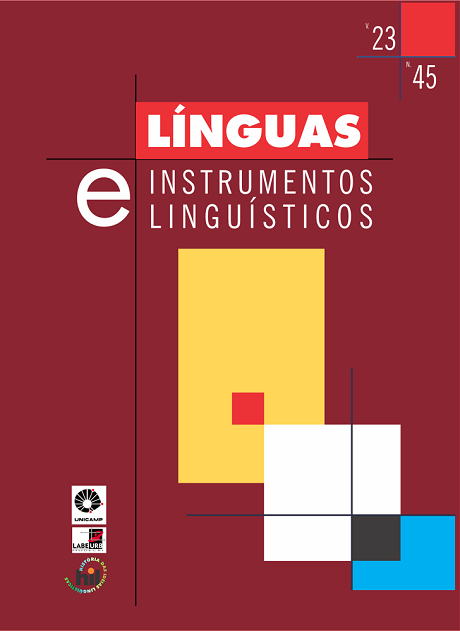Abstract
This article aims to disclose the results of a research carried out with ten students from the ninth year of a peripheral school located in Rio de Janeiro. Affiliated to the Qualitative Paradigm, we’ve asked the research’s subjects how would they understand the argumentativity presented in samples of three text genres: the report, the advertising and the comic strip. Based on the Text Linguistic, we proposed activities that enabled linguistic-discursive analysis of specimens of the proposed genres. Therefore, the results reveal that that most part of the subjects can identify the thesis when presented in the texts, although they can’t argue their findings with its linguistic marks. Despite relying on few participants, the research points out to a needed methodology that observes the genres in their functioning, and that associates lexical and grammatical choices to these objectives, in order to allow periphery students access to a number of social facts, in an inclusive way.
References
ARISTÓTELES. Categorias de Aristóteles. São Paulo: Abril Cultural, 2002.
BEZERRA, P. Prefácio de As raízes históricas do conto maravilhoso. In: PROPP. V. As raízes históricas do conto maravilhoso. São Paulo: Martins Fontes, 2002.
CASCUDO, L. C. Geografia dos mitos brasileiros. São Paulo: Global, 2001.
FAUCONNIER, G.; TURNER, M. The way we think. Conceptual blending and the mind’s hidden complexities. New York: Basic Books, 2002.
FERREIRA, H. A. B. D. Dicionário Aurélio de língua portuguesa. Curitiba: Editora Positivo, 2010.
FUENTES, M. O conto maravilhoso. Disponível em: <https://pt.slideshare.net/MarilzaFuentes/o-conto-maravilhoso>. Acesso em: 13 de dezembro de 2019.
KANT, I. Coleção pensadores. São Paulo: Abril Cultural, 2000.
KOCH, I.G.V. Introdução à linguística textual. São Paulo: Martins Fontes, 2004.
KOCH, I. G. V.; CUNHA-LIMA, M. L. Do cognitivismo ao sociocognitivismo. In: MUSSALIM, F.; BENTES, A. C. (Org.). Introdução à linguística. v. 3: fundamentos epistemológicos. São Paulo: Cortez, 2005.
MARCUSCHI, L. A. Cognição, linguagem e práticas interacionais. Rio de Janeiro: Lucerna, 2007.
MARCUSCHI, L. A. Produção textual, análise de gêneros e compreensão. São Paulo: Parábola Editorial, 2008.
MONDADA, L. A referência como trabalho interativo: a construção da visibilidade do detalhe anatômico durante uma operação cirúrgica. In: KOCH, I. G. V.; MORATO, E. M.; BENTES, A. C (orgs). Referenciação e discurso. São Paulo: Contexto, 2005.
MORAES, R. O meu dicionário de cousas da Amazônia. Brasília: Senado Federal/Conselho Editorial, 2013.
MOURA, H. L. M. Processos de recategorização de personagens afiliados ao universo lendário amazônico. Revista Estudos Linguísticos, 45 (3): p. 1147-1159, São Paulo, 2016.
MOURA, H. L. M. Atividades de referenciação em narrativas afiliadas ao universo do lendário da Amazônia: implicações sociocognitivas e culturais. Tese. (Doutorado em Linguística) – Instituto de Estudos da Linguagem, Universidade Estadual de Campinas. Campinas, SP, 2013
PROPP, V. As raízes históricas do conto maravilhoso. São Paulo: Martins Fontes, 2002.
TOMASELLO, M. Origens culturais da aquisição do conhecimento humano. São Paulo: Martins Fontes, 2003.
https://creativecommons.org/licenses/by-nc-sa/4.0/
Línguas e Instrumentos Linguísticos has a Creative Commons (CC license, preserving the integrity of the articles in an open access environment – to copy and reproduce the material in any means or format; adapt – remix; transform and build over the material. The journal remain with the rights to publish without restrictions.

